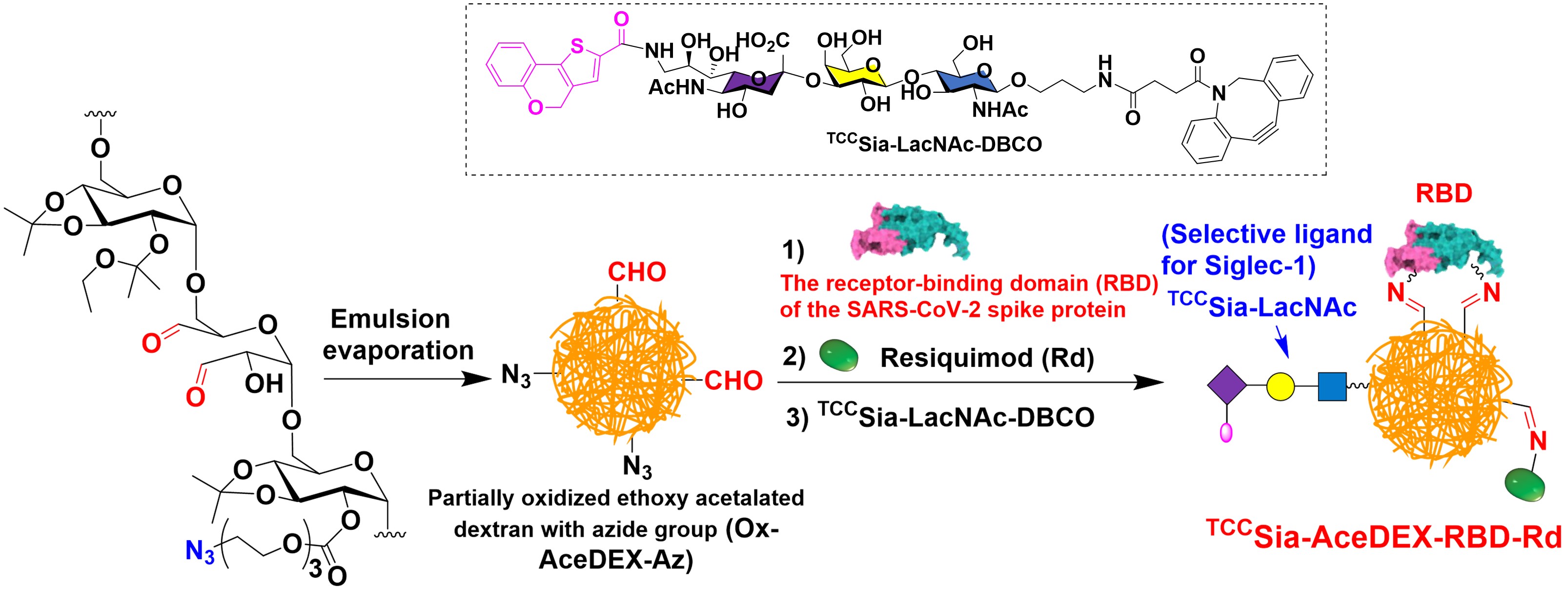
The rapid emergence of infectious diseases, such as COVID-19, coupled with the limitations of conventional vaccines—such as poor stability, weak cross-protection against variants, and insufficient activation of cytotoxic T-cells—highlights the urgent need for next-generation vaccine platforms. Glyconanoparticle-based strategies offer distinct advantages, including improved antigen delivery, customizable immune modulation, and broad applicability against various pathogens and cancers. Our work addresses these challenges by developing innovative nanoparticle vaccine technologies that demonstrate remarkable efficacy in treating infectious diseases and in cancer immunotherapy.
1. Development of Novel Nanoparticle Vaccines for SARS-CoV-2
We engineered a glyconanoparticle system, TCCSia-Ace-Dex-RBD-Rd, that targets Siglec-1 and enhances macrophage delivery through a high-affinity trisaccharide ligand. This platform elicited potent anti-RBD (receptor-binding domain) neutralizing IgG antibodies, exceeding the efficacy of a traditional alum-adjuvanted vaccine (Adv. Sci. 2023). To ensure broader variant coverage, we also designed a PC7A micelle-based RBD vaccine with a CpG adjuvant, which induced cross-neutralizing antibodies against Omicron subvariants (BA.5–KP.2) and provided robust in vivo protection (ACS Nano 2025).
2. Pioneering Peptide-Glyconanoparticle Vaccine Technologies
We developed a pH-responsive acetalated dextran nanocarrier for efficient delivery of cytotoxic T-lymphocyte (CTL) peptides, allowing for covalent conjugation of tumor or viral antigens (e.g., MUC1 and SARS-CoV-2 epitopes) along with TLR-7 agonists. This platform elicited strong CTL responses, offering a universal approach to cancer and antiviral vaccines (Adv. Funct. Mater. 2021). Additionally, we created multifunctional glyconanoparticles that co-deliver indocyanine green (ICG, a photothermal agent), a TLR-7 agonist, and OVA peptides, enabling immediate photothermal tumor ablation while sustaining CTL-mediated antitumor immunity (Biomaterials 2021).
Our ongoing research focuses on developing innovative glyconanoparticle-based targeted protein vaccine systems to address critical therapeutic challenges in breast cancer, particularly triple-negative breast cancer (TNBC).